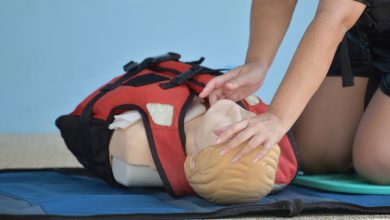Urban areas worldwide face significant challenges in providing quality healthcare to their residents, who often encounter obstacles to accessing primary care, preventive services, and health education. These challenges stem from a complex interplay of socioeconomic inequalities, resource constraints, and a fragmented healthcare system.
As a result, many urban dwellers struggle to obtain the care they need and experience health disparities. To address these issues, urban healthcare requires innovative solutions that transcend conventional modes of healthcare delivery.
One effective solution is implementing collaborative care models involving Family Nurse Practitioners (FNPs), community organizations, and healthcare institutions. As we face the complex challenges of urban healthcare, integrating FNPs offers a promising way forward and creates a more inclusive, preventive, and community-driven model for the future.
This Article Contains
The Role of Family Nurse Practitioners
Family Nurse Practitioners have unique skills and qualifications that make them vital partners in tackling the complex healthcare challenges seen in urban areas. FNPs are trained to provide comprehensive, patient-centered care with a holistic view of health that goes beyond the clinical component. Their education covers the diagnosis and treatment of diseases and emphasizes health promotion, disease prevention, and community engagement.
In urban settings where diverse populations have different health needs, the flexibility of FNPs is essential. These professionals are skilled at adapting to cultural differences and customizing their approach to the specific social health determinants affecting urban communities. Their ability to build trust and collaboration with patients creates a conducive healthcare environment that is crucial for overcoming the obstacles that often limit access to primary care.
Moreover, FNPs are trained to work independently, enabling them to act as primary care providers. This independence is especially beneficial in urban areas experiencing shortages of healthcare professionals, allowing FNPs to address critical gaps in service delivery.
If you are wondering how to become a nurse practitioner in NC and make a meaningful impact in urban healthcare, you should only consider attending reputable educational institutions. Texas
Woman’s University stands out as a smart choice. This university offers a comprehensive curriculum that equips you with the knowledge and skills needed to excel in addressing urban healthcare challenges. Their MSN-FNP program emphasizes clinical proficiency and cultivates a deep understanding of the social determinants of health, including disease prevention and immunization standards.
The Potential Impact of FNPs
FNPs are vital agents of change in urban healthcare’s primary care, preventive services and health education sectors. Let’s explore how FNPs influence these key areas.
Primary Care
Primary care services are essential for the well-being of urban communities, where people face a variety of health challenges and risks. Family nurse practitioners are critical primary care providers in these settings, often serving as the first point of contact for patients. FNPs have the skills and knowledge to diagnose and treat a broad range of health issues, from acute infections to chronic diseases that are more common in urban areas.
Moreover, FNPs provide holistic care that goes beyond addressing immediate health problems. They also help patients manage chronic conditions, coordinate care transitions across different healthcare settings, and build long-term relationships that enhance the quality and personalization of care. As a result, FNPs are vital in creating a strong primary care foundation for urban populations.
Preventive services
FNPs have a distinctive feature in their healthcare approach: their emphasis on preventive services. This is especially important in urban areas, where chronic diseases are more prevalent and often place pressure on healthcare resources.
FNPs play a key role in providing preventive care that reduces the demand for emergency services. They conduct regular screenings, administer vaccines, and perform health assessments that help identify and address health issues early, preventing the worsening of diseases.
Health education
Family nurse practitioners use a unique blend of clinical expertise and patient-centered care, making them excel in health education. They work in urban environments where people have diverse cultural and linguistic backgrounds, which can pose challenges for the effective communication of health information.
FNPs act as educators who overcome this barrier, giving individuals and communities the knowledge and tools they need to take charge of their well-being. They adapt their health education to the specific needs of urban residents, making it more relevant and impactful.
Successful FNP-led initiatives in urban settings
FNPs are creating innovative solutions that enhance the quality, accessibility, and satisfaction of health care in various urban settings. Here are some examples of FNP-led initiatives that have made a positive impact on urban healthcare.
The Nurse Practitioner Healthcare Foundation (NPHF)
The NPHF is a leading organization that supports the development of NP practice, education, and the health of underserved populations. It has various programs and projects that address the health needs of urban residents.
One is the partnership with Derm for Primary Care®, an online learning platform that helps primary care providers improve their skills in managing common skin conditions. This initiative uses technology to provide NPs in urban areas with specialized knowledge, enabling them to effectively deal with prevalent health problems. The NPHF’s comprehensive approach not only strengthens FNPs but also improves the health and well-being of the urban communities they serve.
Nurse Practitioner-Led Clinics (NPLCs)
NPLCs are a novel primary care delivery model led and staffed by FNPs. These clinics operate independently of hospitals or physician practices and offer comprehensive, accessible, and coordinated family health care services to patients who do not have a primary care provider. NPLCs have positively impacted urban areas such as Ontario, Canada.
NPLCs improve access to care, patient satisfaction, and health outcomes. Furthermore, these clinics reduce healthcare costs and emergency room visits, which are critical challenges in urban healthcare settings. The success of NPLCs demonstrates the transformative power of FNP-led models in improving the urban healthcare system.
Nurse-Family Partnership (NFP)
The New York City Department of Health and Mental Hygiene initiated the Nurse-Family Partnership program. This initiative provides home visits by NPs to low-income, first-time mothers living in urban areas, aiming to address the intersection of maternal and child health.
The program focuses on reducing preterm births, improving breastfeeding rates, and enhancing child development outcomes. The Nurse-Family Partnership brings healthcare to the homes of underserved populations, demonstrating how FNPs can tackle healthcare disparities at their sources.
This initiative boosts health outcomes and builds a unique and trusting relationship between FNPs and the communities they serve, creating a basis for lasting positive change in urban maternal and child health.
Principles of effective collaboration in urban healthcare settings
Collaborative care models in urban healthcare depend on effective collaboration among diverse actors, such as FNPs, community organizations, and healthcare institutions. To address complex urban health challenges, these parties must work together cohesively based on a few key components and principles. Here is a look at the essential elements that make collaborations successful.
Shared Vision
Effective collaboration begins with a shared vision and clearly defined goals. Collaborators, including FNPs, community organizations, and healthcare institutions, must understand what they aim to achieve and how they will collectively work toward those objectives.
This shared vision guides their actions and ensures they are coordinated and consistent in improving access to primary care, preventive services, and health education in urban areas.
Trust and Respect
Trust and respect are at the core of successful collaboration. All collaborators need to appreciate and acknowledge each other’s expertise and contributions. Building positive relationships based on mutual trust creates an environment that fosters open communication, idea-sharing, and innovative problem-solving. These elements are crucial for tackling the complex challenges of urban healthcare.
Communication and Feedback
Successful collaboration depends on trust and respect among all collaborators. FNPs, community organizations, and healthcare institutions should value and recognize each other’s expertise and contributions. Positive relationships based on mutual trust create an environment that supports open communication, idea-sharing, and innovative problem-solving, all of which are essential for addressing urban healthcare’s complex challenges.
Roles and Responsibilities
Having well-defined roles and responsibilities for each collaborator is essential for avoiding confusion and creating a positive working relationship. Each collaborator, whether they are FNPs, community organizations, or healthcare institutions, should clearly state and explain their roles and how they relate to the overall goals of the project.
They should also respect the boundaries and independence of other collaborators and acknowledge their expertise and contributions. By setting up a clear framework for collaboration, each entity can perform its tasks effectively and efficiently without interfering with or duplicating the work of others.
Leadership
To collaborate effectively, it is important to have strong leadership and governance structures that support the decision-making process, conflict resolution, and the accountability of the collaborators. Leaders should provide direction and guidance to collaborative efforts, motivating collaborators to share a common commitment to the vision and goals of the project.
Governance structures should ensure that all collaborators are included and treated fairly. This allows them to express their opinions and concerns and makes them feel responsible for the outcomes of the collaboration.
Evaluation and learning
It is very important for the collaborators to continuously evaluate and learn from their experiences to ensure the long-term success of collaborative care models. They should keep track of and assess their processes and outcomes, using data and feedback to enhance their practices and share their insights with others.
This way, they can adopt an iterative approach that allows them to adjust and improve their collaboration over time, making it more dynamic, responsive, and adaptable to the changing needs of urban communities.
7 Actionable Strategies for Integrating FNP-led Care into Urban Communities
Integrating FNP-led care into urban settings requires overcoming certain barriers and implementing effective strategies. Here are some potential ways to achieve this goal.
Identifying and Engaging Stakeholders for a Comprehensive Assessment
To transform urban health care, FNPs need to grasp the complex and interrelated health issues and opportunities in these settings. A key step is engaging stakeholders strategically and inclusively. This means identifying and involving the main actors, such as local healthcare providers, community leaders, and policymakers, in assessing the urban health situation.
Stakeholder engagement is not just a formal procedure but a purposeful way to learn from the diverse and dynamic urban health environment. Local healthcare providers have valuable knowledge of the existing healthcare system and the problems faced by patients. Community leaders possess a deep understanding of the social and cultural factors that affect health, while policymakers have insights into current policies and possible ways to improve them.
Developing a tailored collaborative model for urban settings
To create a new healthcare model for urban settings, one needs to move away from generic approaches. Instead, the focus should be on designing collaborative models of FNP-led care that are carefully adapted to the specific features of the urban environment in question. This process involves a thorough understanding of the urban population, its prevailing health issues, and the existing healthcare infrastructure.
Adapting FNP-led care starts with a careful study of urban demographics. This includes an analysis of age groups, socio-economic status, cultural diversity, and prevalent health inequalities within the community. By understanding the unique makeup of the urban population, FNPs can develop care models that are inclusive, culturally competent, and responsive to the diverse needs of the community.
Empowering FNPs and allies for excellent urban healthcare
FNP-led care in urban environments depends on the competence and readiness of the healthcare professionals involved. Creating strong training programs is essential to equip FNPs and their allies with the needed knowledge, skills, and confidence they need to deal with the complex landscape of urban health care.
The basis of comprehensive training is adopting a holistic approach that goes beyond clinical expertise. FNPs and health care professionals receive training that covers cultural competence, emphasizing an understanding and appreciation of the diverse backgrounds prevalent in urban communities. This cultural sensitivity ensures that healthcare delivery is respectful, inclusive, and tailored to the unique needs of the population.
Promoting awareness and acceptance of FNP roles
To make FNP-led care work well in urban healthcare, it is important to create positive views and support for these professionals’ roles and scope of practice. This involves strategic awareness campaigns for urban healthcare consumers, providers, and policymakers.
The success of FNP-led care depends on how familiar key stakeholders are with the roles and abilities of FNPs. Awareness campaigns start with a deep dive into the perceptual dynamics within the urban community. This involves measuring existing knowledge, attitudes, and possible misunderstandings about the FNP role.
Awareness campaigns include traditional channels such as print media, community events, and local partnerships, along with digital platforms, social media, and interactive workshops. The goal is to reach a diverse audience within the urban community, ensuring that the message about FNPs is accessible, relatable, and widely understood.
Coordinated care through seamless communication
To communicate effectively, FNPs need to share information with other healthcare providers comprehensively and securely. They work with general practitioners, specialists, and paramedics to develop protocols for exchanging patient data through electronic health records, care plans, and diagnostic results. This enables informed decision-making and continuity of care.
FNPs also use technology to enhance communication and collaboration. They partner with healthcare institutions to adopt digital platforms that allow real-time access to patient information. This improves communication speed and quality, helping healthcare providers to coordinate and deliver better care.
Moreover, FNPs recognize the importance of interpersonal skills and role clarity in communication. They arrange interdisciplinary collaboration workshops that involve professionals from different fields. These workshops provide opportunities for learning, role definition and relationship building that foster a collaborative healthcare culture in urban settings.
Evaluating and Demonstrating Urban Health Impact
To measure their impact on urban health, FNPs need to focus on the patients’ perspectives. They can interact with patients to collect feedback on how they experience FNP-led care. They evaluate changes in health status, patient-reported outcomes, and satisfaction with the care provided.
Patient stories and testimonials are essential parts of the evidence base, offering rich insights into the real impact on individual lives. In addition to clinical outcomes, the evaluation covers the levels of efficiency and resource usage in the health system.
Securing resources for long-term urban healthcare integration
To ensure the long-term integration of FNP-led care in urban healthcare systems, FNPs need to pursue sustainable funding and policy and regulatory changes. This involves finding financial resources and influencing the regulatory environment to support the stability, scalability, and success of FNP-led initiatives in urban settings.
These strategies, when implemented cohesively, contribute to the resilience and adaptability of FNP-led initiatives in the dynamic urban healthcare environment. Integrating FNP-led care in urban health care is driven by collaboration, innovation, and a strong commitment to enhancing the health and well-being of urban populations.
Takeaways
FNPs start by building strategic partnerships. They work with healthcare institutions, philanthropic organizations, and governmental bodies to find funding sources that match the objectives of FNP-led care in urban settings. These partnerships may include grants, endowments, or collaborative funding models that provide a solid financial base for FNP-led initiatives.
FNPs, community organizations, healthcare institutions, and policymakers work together in this endeavor, making the vision of accessible, preventive, and education-centric healthcare in urban areas a reality. When this is done successfully, the health of the community is a shared responsibility and a collective triumph.
Checkout the trending article of plant based eating benefits.






